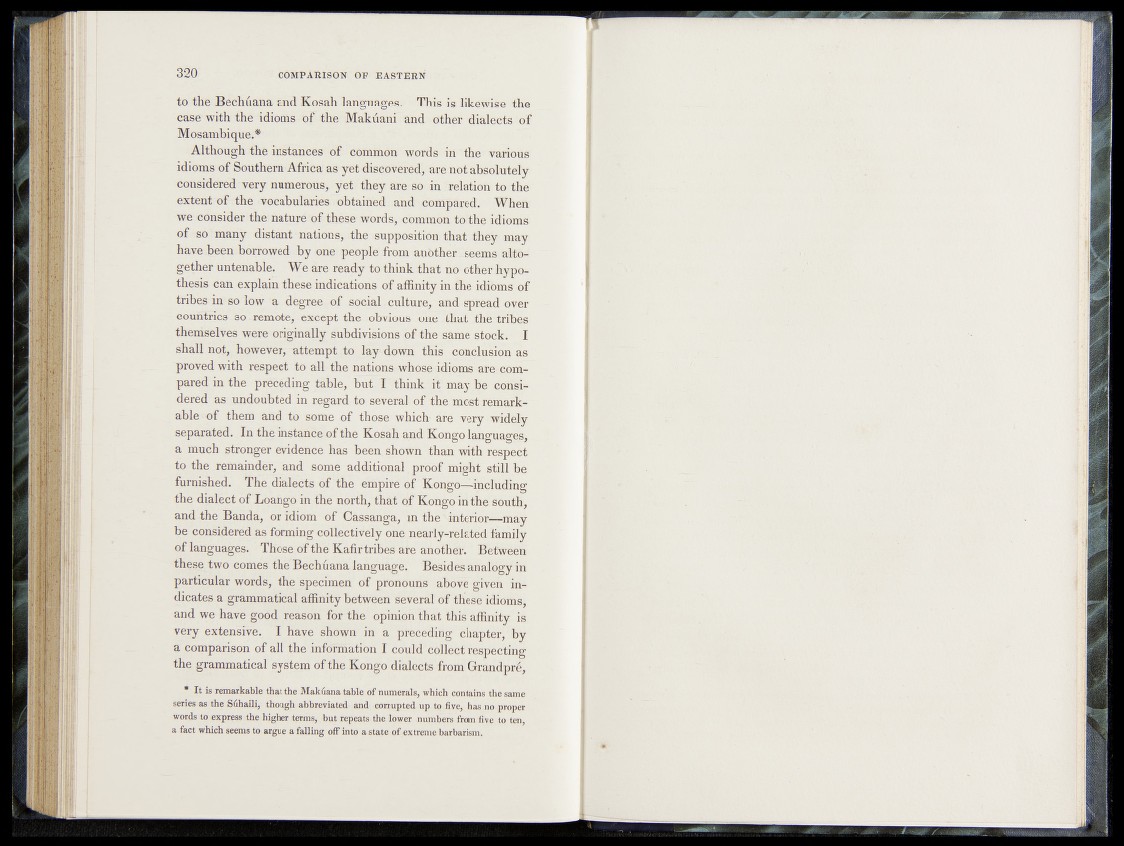
to the Bechüana and Kosah languages. This is likewise the
ease'with the idioms of the Makuani and other dialects of
Mosambique.^
Although the instances of common words in "the various
idioms of Southern Africa as yet discovered, are not absolutely
considered very numerous, yet they are so in "relation to the
extent of the vocabularies obtained and compared. When
we consider the nature of these words, common to the idioms
of so many distant nations, the supposition that they may
have been borrowed by one people from another. seems altogether
untenable. We are ready to think that no other hypothesis
can explain these indications of affinity in the idiöms of
tribes in so low a degree of social culture, and spread over
countries so . remote, , except the obvious one that the tri^es
themselves were originally subdivisions of the same stock, d
shall not, however, attempt to lay down this conclusion as
proved with respect to all the nations whose idioms"are»qpm-
pared in the preceding table, but I think it may be con'sir
dered as undoubted in regard -to several of the. most remarkable
of them and to some of those which- are . very widely
separated. In the instance of the Kosah and Kongo languages,
a much stronger evidence has been shown than with respect
to the remainder, and some additional proof might still be
furnished. The dialects of the empire of Kongo—'including
the dialect of Loango in the north, that of Kongo in the south,
and the Banda, or idiom of Cassanga, m the' interior—may
be considered as forming collectively one nearly-related family
of languages. Those of the Kafirtribes are another. Between
these two comes the Bechüana language. Besid es an alogy in
particular words, the specimen of pronouns above given indicates
a grammatical affinity between several of these idioms,
and we have good reason for the opinion that this affinity is
very extensive. I have shown in a preceding chapter, by
a comparison of all the information I could collect respecting
the grammatical system of the Kongo dialects from Grandpré, *
* It is remarkable that the Maküana table of numerals, which contains the same
series as the Sóhaili, though abbreviated and corrupted up to five, has no proper
words to express the higher terms, but repeats the lower numbers from five to ten,
a fact which seems to argue a falling off into a state of extreme barbarism.